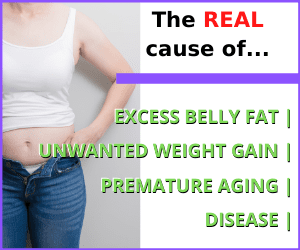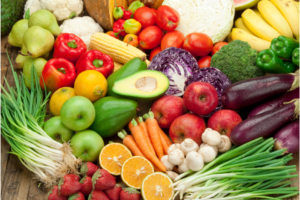Click here to access the FREE 4-day cleanse and detox to help you with the best diet plan to lose weight during menopause.
Book an Online Strategy Session to find out how I may be able to help you:
Weight gain is a common concern during menopause. Many women find that they start putting on weight as they enter into this stage of life, even if they haven't gained weight before. This can be frustrating, especially since it can be hard to lose weight once it's been gained. Fortunately, there is a diet plan that can help you lose weight during menopause. This diet plan focuses on eating healthy foods and staying active. It may take some effort to follow at first, but the results are worth it! So if you're looking for a way to shed those extra pounds, give this diet plan a try. You won't regret it!
 1. Start by eating more fruits and vegetables.
1. Start by eating more fruits and vegetables.
Fruits and vegetables are packed with nutrients that are essential for good health. They're also low in calories, so you can eat plenty of them without gaining weight. Include a variety of fruits and vegetables in your diet, such as dark leafy greens, berries, citrus fruits, and cruciferous vegetables.
2. Make sure to get enough protein.
Protein is important for maintaining muscle mass as you age. It can also help you lose weight since it helps you feel full and satisfied after eating. Good sources of protein include lean meats, poultry, fish, tofu, legumes, and eggs.
3. Get moving!
Exercise is crucial for maintaining a healthy weight during menopause. It helps to boost your metabolism and burn calories. Aim for at least 30 minutes of moderate-intensity exercise most days of the week. This can include walking, biking, swimming, or doing a workout DVD at home.
4. Avoid processed foods and sugary drinks.
These foods are often high in calories and low in nutrients. They can also lead to weight gain since they're not very satisfying. Instead, focus on eating whole, unprocessed foods that are nourishing and satisfying.
5. Drink plenty of water.
Water is essential for good health and it can also help you lose weight. It helps to flush out toxins and keeps you feeling full so you eat less. Aim for eight glasses of water per day.
 6. Get enough sleep.
6. Get enough sleep.
Sleep is important for overall health and it can also help with weight loss. When you're well-rested, you have more energy to exercise and you're less likely to crave unhealthy foods. Aim for seven to eight hours of sleep per night.
7. Practice stress relief.
Stress can lead to weight gain, so it's important to find ways to relax and de-stress. Try yoga, meditation, or deep breathing exercises.
8. Seek support.
It can be helpful to have a support system when you're trying to lose weight. Talk to your friends and family members about your goals, and join a weight loss group or online forum.
If you’re looking for the best diet plan to help with weight loss during menopause, look no further. The principles we outlined here are based on scientific evidence and can help you lose weight safely and effectively. But if you still have questions or want more personalized advice, don’t hesitate to contact us today. We would be happy to help!



 1. Start by eating more fruits and vegetables.
1. Start by eating more fruits and vegetables. 6. Get enough sleep.
6. Get enough sleep.
Would you have a sample meal plan? It almost seems like you suggest cutting everything but fruits and vegetables?
No meat, no dairy, no complex carbs, no white sugar, no pasta, no eggs, no grains, etc. Whats left 🙂
Hi There! Thanks for your question. Sorry if the video was confusing. It’s one of my first videos. What I know about healthy menopause is that the key is a healthy liver and a healthy liver requires a low fat diet, and lots of cleansing foods like fruits and vegetables. Most animal foods are high fat, so cutting back is a good idea.